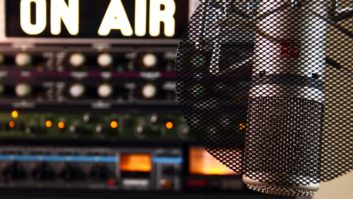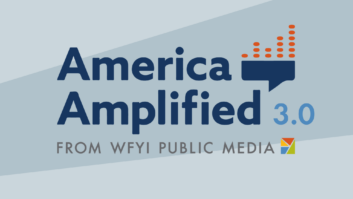The author is membership program director of the National Federation of Community Broadcasters. NFCB commentaries are featured regularly at radioworld.com.

A day before Pres. Donald Trump was sworn into office, reports of sweeping cuts to or outright elimination of certain programs such as the Corporation for Public Broadcasting, National Endowment for the Arts and National Endowment for the Humanities sent many in the noncommercial media world, especially some who thought funds were safe, into a tailspin. Make no mistake about it — what would essentially be killing off the Corporation for Public Broadcasting could mean is absolutely devastating.
Created by the 1967 Public Broadcasting Act, CPB supports noncommercial media, providing financial help for initiatives at nearly 1,500 organizations nationwide. When you think about your childhood public television, there’s a good chance CPB gave to it. When you recall that wonderful public radio moment, it is quite possible CPB backed it. For millions of parents, CPB has been that quiet partner, here to give their kids a chance to learn and grow. The Trump administration’s suggestion of privatizing an already separate entity is as good as ending it.
CPB matters because, with a stroke of Pres. Lyndon B. Johnson’s pen almost 50 years ago, the United States acknowledged the importance of educational media. CPB is part of our nation’s commitment to ensuring culture, learning and the arts are available to all Americans. Just as the Dept. of Defense protects the homeland, public media nourishes the fertile fields in our minds. Leaving future generations’ imaginations fallow would be a burden too heavy to bear.
By its own definition, CPB sees noncommercial media as “champion[ing] the principles of diversity and excellence of programming, responsiveness to local communities and service to all.” Whether you’re at a megamedia outlet or an organization in a tiny town, these values speak to all of us. If Congress and Pres. Trump are unswayed by Americans who believe in the importance of funding for educational media, we all lose ground.
Why does Trump want to kill off CPB? Ostensibly, the proposed budget cuts are a cost-cutting measure. Conservatives have long been at war with NPR over charges of liberal bias. The Media Research Center alleges “the left has a massive, taxpayer-funded radio network.” The website Breitbart criticized NPR election analysis as unfair to conservatives.
NPR heard bias complaints from its listeners as well. Criticism of NPR matters because many on the right are hanging their hats on perceptions of a cozy relationship between CPB and NPR or with radio stations who carry predominantly NPR programming as a reason to end funding for CPB. Few know the range of projects CPB supports. What an end to taxpayer funding would mean to many communities, which in turn have no editorial role at NPR in the first place, is like throwing out the proverbial baby with the bathwater.
A few endeavors recently supported by CPB:
- Early childhood learning programs, digital tools and materials in low-income communities, with an emphasis on science
- A documentary on how medicine and technology are saving U.S. soldiers
- Funding for health and economy reporting in the Great Lakes region
As an organization that receives tax money, CPB is certainly expected to spend those funds responsibly. By all credible accounts, CPB does its best to spend wisely and honor Americans’ investment. The CPB Office of the Inspector General has not been shy about calling out errors by grant recipients. Its fidelity to the public trust should be lauded.
Congress and the president are fair to expect all agencies meet rigorous and exacting standards. Surely an assessment of CPB’s budget decisions is something in the purview of lawmakers. How are media organizations based in underserved communities faring? What kind of assistance is community-based media, including low-power community radio, getting in order to represent culture in the heart of America? They’re all germane questions. Ending CPB is not the answer.
Protect My Public Media, a coalition of radio, television and digital groups of which the National Federation of Community Broadcasters is part, is ramping up to educate Congress about the necessity of noncommercial media and why Americans want it funded. The #ProtectPublicMedia social media campaign is one part of that effort. The public is invited to submit testimonials about why noncommercial media matters. The window in which to raise our voices is small. We can act now or pay dearly for it later.












